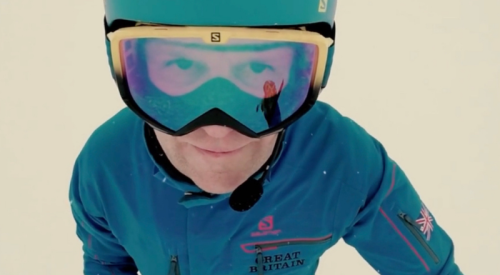
Being your authentic self is central to a medal-winning performance

This International Day of People with Disabilities we’ve spoken to leading GB men’s blind skier, John Dickinson-Lilley, about being your authentic self as an LGBT and disabled athlete.
The Coronavirus pandemic has made 2020 a difficult year for everyone. How have you been coping?
2020 has been a difficult year – ‘challenging’ doesn't do it justice. Disabled people have been disproportionately impacted by shielding measures. It’s also been liberating in the sense that home working – a key demand and reasonable adjustment for disabled workers – is now more normalised. But, ironically, this only happened when able-bodied people needed it!
What are the challenges of being an LGBT, disabled person in the sports world?
Being a disabled, LGBT athlete is a bit of a double-whammy. You get all of the challenges around your disability which you need to manage to deliver a world-class performance, and then you need to navigate the homophobia and heteronormative cultural issues.
What have been some of the highlights and special moments throughout your career?
It's true to say that being your authentic self as an athlete is central to a medal-winning performance. I remember winning the European Cup in slalom, heading to Tignes to compete in the British Championships, zipping back to do BBC’s The One Show then returning to win both British titles – all in seven days. It felt very jet set and what a brilliant finish to the season!
Do you have any advice for people who want to be better allies to LGBT disabled people in sports and beyond?
I have two pieces of advice. For LGBT athletes: please be you, it’s your truth, your power and will help you to win. For allies: help create an environment that enables LGBT athletes to be out. Challenge language, behaviour and cultural norms, and use your power and influence so that LGBT athletes can either be out, or at least not isolated, in the team or sporting environment.